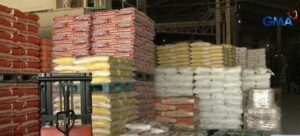
Department of Agriculture (DA) Secretary Francisco Tiu Laurel Jr. expressed support for declaring a “food security emergency for rice,” citing strong data to justify the move. This follows the National Price Coordinating Council’s (NPCC) recommendation to address persistently high rice prices and ensure market stability.
Justification for the Emergency Declaration
Tiu Laurel highlighted that despite efforts to reduce rice tariffs from 35% to 15% under President Ferdinand Marcos Jr.’s Executive Order 62, retail prices have remained elevated.
“The data is very clear. We lowered tariffs, but branded rice prices in the market did not decrease. This recommendation is justified,” Tiu Laurel said during a Palace briefing.
He noted that National Food Authority (NFA) warehouses, which currently hold 300,000 metric tons of rice, are already at full capacity ahead of the February harvest season.
Planned Actions
If the food security emergency is approved, the government plans to release 300,000 tons of rice in February to stabilize prices. The released stocks would be replaced with locally-produced rice to support Filipino farmers.
Department of Trade and Industry (DTI) Secretary Ma. Cristina Roque, who chairs the NPCC, stated that the measure would empower the government to protect consumer welfare while strengthening agricultural systems.
No Increase in Rice Imports
Tiu Laurel assured the public that additional rice imports would not be necessary. “We want to temper businessmen and encourage them to set reasonable prices while maintaining profitability,” he said.
The Philippines imported 4.7 to 5 million metric tons of rice in 2024, primarily from Vietnam and Thailand.
Price Reductions and Monitoring
The DA recently announced a price cut for 25% broken rice sold at Kadiwa stores, reducing it from ₱40 to ₱38 per kilo. This reduction aligns with the upcoming implementation of a maximum suggested retail price (MSRP) of ₱58 per kilo for 5% broken imported rice, effective January 20 in Metro Manila.
The MSRP will be reviewed monthly to reflect global price fluctuations and tariff rates, with plans to expand coverage to other key cities nationwide.
Persistent Price Puzzle
Despite the tariff reduction, the anticipated drop in rice prices has not materialized. NEDA Director Nieva Natural noted that dominant market players were pricing imported rice nearly at par with locally-produced rice, contrary to competitive market expectations.
“This is a puzzle for us… it deserves a more nuanced analysis,” Natural said during a House committee hearing.
The DA disputed NEDA’s findings, stating that some price reductions had been observed.
Moving Forward
As the DA awaits the formal transmittal of the NPCC resolution, Secretary Tiu Laurel emphasized the need to act swiftly to stabilize rice prices while supporting Filipino farmers and consumers.





















Comments are closed for this article!